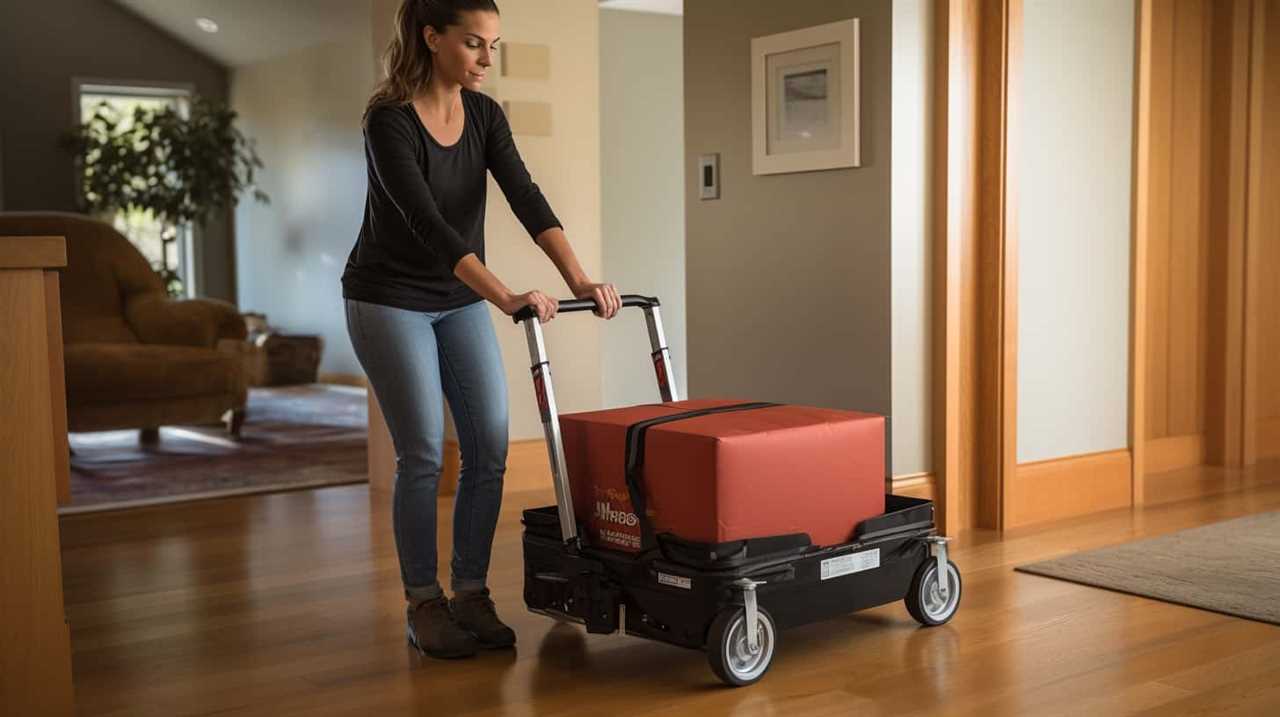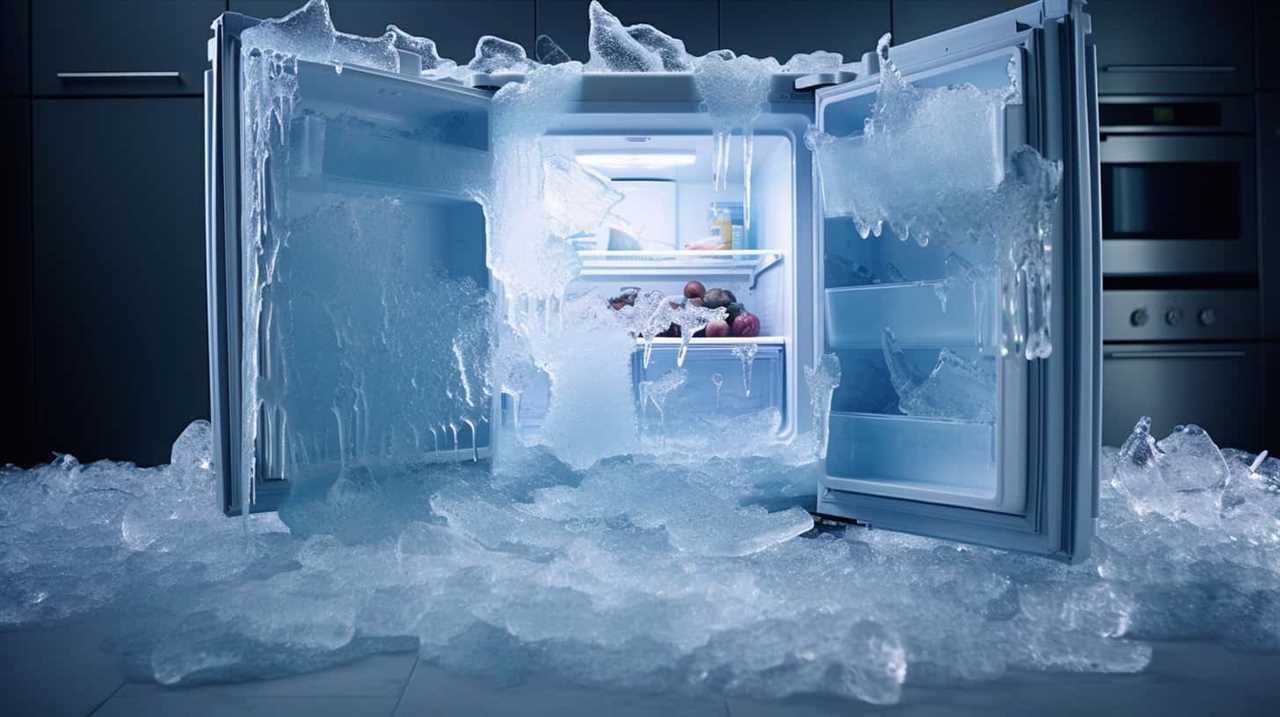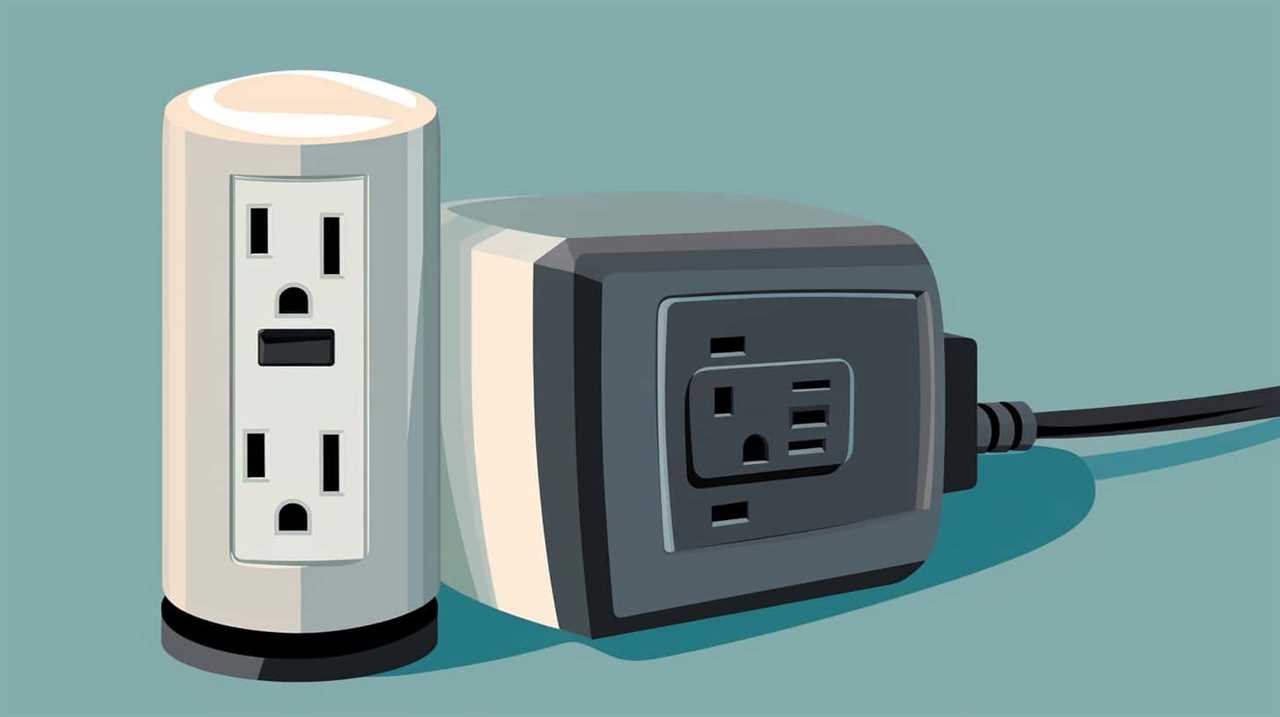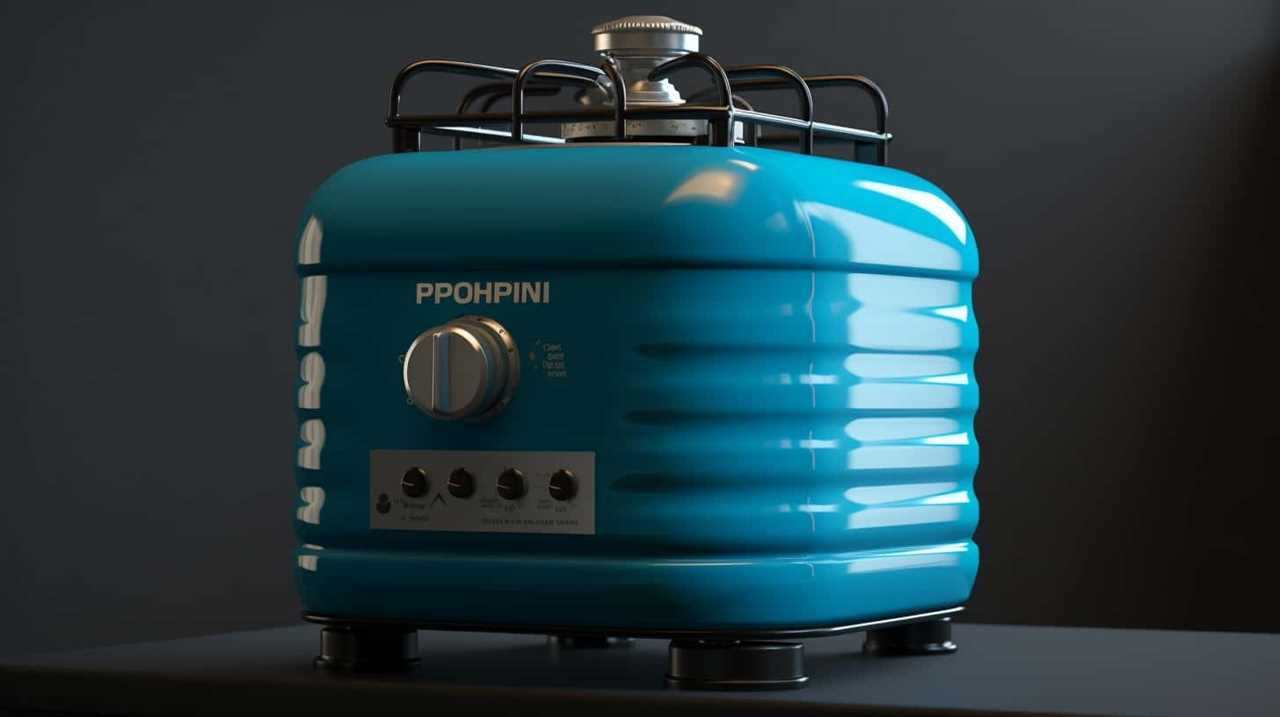Curious about the world of hardware appliances? Don’t worry, we have all the information you need. Join us in this article as we delve into the definition, types, key features, and advantages of hardware appliances.
We’ll also delve into the differences between hardware and software solutions, maintenance and support, upgrading and scaling, and security considerations.
Get ready to become a master of hardware appliances as we uncover future trends in this exciting field.
Let’s dive in!

Key Takeaways
- Hardware appliances are physical devices designed for specific tasks or functions, such as network management, storage, and security.
- They offer dedicated functionality, optimal performance, and reliability compared to software-based solutions.
- Hardware appliances have robust security measures, scalability, and efficient task-specific design.
- They require physical maintenance but provide enhanced security, simplified management, and faster processing speeds.
Definition of Hardware Appliances
In our article, we define hardware appliances as physical devices designed for specific tasks or functions. These appliances come in various types, each tailored to address specific needs.
One common type is a network appliance, which is designed to manage and secure network traffic. Another type is a storage appliance, which is used for efficient data storage and retrieval. Additionally, there are security appliances that provide protection against threats such as viruses and malware.
The benefits of using hardware appliances are numerous. Firstly, they offer dedicated functionality, ensuring optimal performance for their specific tasks. Secondly, they provide a level of reliability and stability that software-based solutions may not always achieve. Lastly, hardware appliances often have easier setup and management processes, reducing the time and effort required for deployment.
Common Types of Hardware Appliances
Let’s explore the various types of hardware appliances commonly used for specific tasks and functions.

Hardware appliances come in different forms and serve different purposes. Here are some common types:
- Network Appliances: These appliances are designed to manage and secure network traffic. They can include firewalls, routers, switches, and load balancers. Network appliances provide enhanced security, performance, and reliability for network infrastructure.
- Storage Appliances: These appliances are used for data storage and management. They can include network-attached storage (NAS) devices and storage area network (SAN) appliances. Storage appliances offer scalability, high availability, and data protection features.
- Security Appliances: These appliances are focused on safeguarding systems and networks from threats. They can include intrusion detection systems (IDS), antivirus gateways, and web application firewalls. Security appliances provide real-time threat detection and prevention, ensuring the integrity and confidentiality of data.
Advantages of using hardware appliances include improved performance, simplified management, and enhanced security. By offloading specific tasks to dedicated hardware, organizations can optimize their resources and achieve better overall efficiency.
Key Features of Hardware Appliances
One key feature of hardware appliances is that they offer specialized functionality by integrating dedicated hardware components and software. These appliances are designed to perform specific tasks efficiently and reliably, making them an ideal choice for businesses and individuals who require high-performance solutions.
Hardware appliances often come with pre-installed software, eliminating the need for additional setup and configuration. They’re also built with robust security measures to protect sensitive data and prevent unauthorized access.

Another key feature is scalability, allowing for easy expansion as the needs of the user or organization grow. Additionally, hardware appliances offer simplified management and maintenance, reducing the burden on IT staff and ensuring smooth operation.
The benefits of using hardware appliances will be further explored in the next section on the advantages of hardware appliances.
Advantages of Hardware Appliances
Now let’s explore the advantages of hardware appliances for businesses and individuals.
Here are a few benefits to consider:

- Enhanced Performance: Hardware appliances are specifically designed to perform specific tasks efficiently, resulting in improved performance and faster processing speeds.
- Increased Security: Hardware appliances offer dedicated security features, such as firewalls and encryption capabilities, ensuring a higher level of protection against cyber threats.
- Simplified Management: Hardware appliances often come with user-friendly interfaces and centralized management systems, making it easier to configure, monitor, and manage the appliance.
These advantages make hardware appliances a valuable investment for businesses and individuals seeking optimized performance, robust security, and streamlined management.
Differences Between Hardware and Software Solutions
When comparing hardware and software solutions, there are several key differences to consider.
First, performance and reliability are often superior in hardware solutions due to dedicated resources and optimized hardware components.
Second, cost and scalability can vary significantly between the two options, with hardware solutions typically requiring higher upfront costs but offering greater long-term scalability.

Lastly, maintenance and customization are factors to consider, as hardware solutions may require more physical maintenance but also offer greater flexibility for customization.
Performance and Reliability
Performance and reliability are key differentiators between hardware and software solutions.
When it comes to performance optimization, hardware appliances often outperform software solutions due to their specialized design and dedicated resources. Hardware appliances are built with specific hardware components that are optimized for specific tasks, resulting in faster and more efficient processing.
On the other hand, software solutions may experience performance limitations due to the constraints of the underlying hardware.

In terms of reliability testing, hardware appliances undergo rigorous testing to ensure their stability and durability under various conditions. This includes stress testing, fault tolerance testing, and failure analysis. As a result, hardware appliances are generally more reliable than software solutions, providing a robust and consistent performance that’s essential for critical applications.
Cost and Scalability
In terms of cost and scalability, hardware appliances and software solutions differ significantly.
When it comes to cost analysis, hardware appliances generally require a higher upfront investment compared to software solutions. This is because hardware appliances involve the purchase of physical equipment, such as servers or networking devices, which can be costly. On the other hand, software solutions often have lower upfront costs as they can be implemented on existing hardware infrastructure.
However, scalability solutions differ between the two. Hardware appliances typically offer better scalability as they can be easily upgraded or expanded by adding more physical components. Software solutions, while they can be scaled to some extent, may require additional hardware resources to handle increased demand.

Ultimately, the choice between hardware appliances and software solutions depends on the specific needs and budget of the organization.
Maintenance and Customization
To properly maintain and customize hardware appliances and software solutions, we must consider the differences between the two options. Here are the key distinctions to keep in mind:
- Maintenance: Hardware appliances require physical upkeep, such as cleaning, replacing parts, and conducting regular checks for performance issues. Software solutions, on the other hand, necessitate regular updates, patches, and monitoring for security vulnerabilities.
- Customization: When it comes to hardware appliances, customization options are often limited to hardware upgrades or modifications. In contrast, software solutions offer greater flexibility for customization, allowing users to tailor the software to their specific needs through configuration settings or even coding modifications.
- Complexity: Maintaining and customizing hardware appliances can be more complex and time-consuming due to their physical nature. In contrast, software solutions can be updated, modified, and customized more easily and quickly, thanks to their virtual nature.
Understanding the differences between hardware appliances and software solutions is crucial for effectively managing their maintenance and customization requirements.
How Hardware Appliances Work
Hardware appliances function as dedicated devices designed to perform specific tasks. These devices are built with specialized hardware components and software to optimize performance and efficiency. One of the advantages of hardware appliances is their ability to offer high-speed processing and low latency, allowing for quick and efficient task execution.

Additionally, hardware appliances are designed to handle large workloads and can often handle more complex tasks than general-purpose servers. However, there are some limitations to consider. Hardware appliances can be expensive to purchase and maintain, and their functionality is often limited to the specific task they’re designed for. Upgrades and customization can also be challenging, as hardware components may need to be replaced to meet changing requirements.
Despite these limitations, hardware appliances remain a valuable solution for organizations that require high-performance and dedicated functionality.
Benefits of Using Hardware Appliances
Using hardware appliances offers several benefits for users.
Firstly, it provides enhanced performance and security compared to software-based solutions. Hardware appliances are designed to handle specific tasks efficiently, resulting in faster processing speeds and enhanced protection against cyber threats.

Additionally, hardware appliances simplify setup and management processes, making it easier for users to configure and maintain their systems. This reduces the need for extensive technical expertise and ensures a smoother user experience.
Enhanced Performance and Security
We have found that utilizing hardware appliances offers numerous benefits, including enhanced performance and security.
Hardware appliances can provide performance optimization by offloading resource-intensive tasks from the main server, freeing up processing power and reducing latency. They’re designed to handle specific tasks efficiently, resulting in faster response times and improved overall performance.
Additionally, hardware acceleration can further enhance performance by using specialized hardware components to accelerate specific functions, such as encryption or compression.

In terms of security, hardware appliances offer dedicated security features and protocols, providing an extra layer of protection against cyber threats. They’re built with robust security measures that are specifically designed to protect sensitive data and mitigate security risks.
Simplified Setup and Management
When it comes to simplified setup and management, one of the key benefits of hardware appliances is their user-friendly interface and intuitive controls. These features make it easy for users to quickly install and configure the appliance without requiring extensive technical knowledge. Additionally, hardware appliances often come with centralized management capabilities, allowing administrators to easily monitor and control multiple appliances from a single interface. This centralized management simplifies the task of managing and maintaining the appliances, reducing the time and effort required. To illustrate this point, consider the following table:
| Feature | Description |
|---|---|
| User-friendly interface | Intuitive controls and clear instructions make setup a breeze. |
| Centralized management | Monitor and control multiple appliances from a single interface. |
With simplified setup and centralized management, hardware appliances offer a streamlined experience for users, making them an ideal choice for those seeking convenience and ease of use.
Factors to Consider When Choosing Hardware Appliances
Before diving into the world of hardware appliances, it’s important to evaluate the reliability and performance of these devices on a regular basis. When considering hardware appliance selection, there are several factors to keep in mind for making an informed purchasing decision.

- Hardware Appliance Features: Assess the specific features and capabilities that the appliance offers to ensure it aligns with your requirements.
- Hardware vs Software Solutions: Consider the advantages of hardware appliances over software solutions, such as enhanced performance and security.
- Hardware Appliance Cost: Evaluate the cost of the hardware appliance, taking into account both the upfront investment and long-term maintenance expenses.
Considering these factors will help you choose a hardware appliance that meets your needs efficiently.
In the next section, we’ll explore the integration of hardware appliances in networks and its importance for seamless operations.
Integration of Hardware Appliances in Networks
When integrating hardware appliances into networks, there are several benefits to consider.
Firstly, hardware integration allows for improved network performance by offloading specific tasks and functions to dedicated appliances. This helps to reduce the workload on other network devices and ensures efficient operation.

Additionally, hardware appliances provide specialized functionality that can enhance security, optimize traffic management, and improve overall network reliability.
Benefits of Hardware Integration
In our experience, integrating hardware appliances in networks offers numerous benefits.
- Improved Performance: Hardware appliances are specifically designed to handle specific tasks, which results in increased performance and efficiency. This allows for faster processing and reduced latency in network operations.
- Enhanced Security: Hardware appliances often come equipped with advanced security features such as firewalls, intrusion detection systems, and encryption capabilities. These features provide an extra layer of protection against cyber threats, ensuring the integrity and confidentiality of data.
- Simplified Management: Hardware integration allows for centralized management of network resources, making it easier to monitor and control network activities. This simplifies the overall management process and reduces the need for manual configuration and troubleshooting.
Network Performance Improvements
Hardware integration in networks leads to significant improvements in network performance. By incorporating hardware appliances such as network monitoring tools and load balancers, organizations can optimize their network infrastructure and enhance overall efficiency. Network monitoring appliances provide real-time visibility into network traffic, allowing administrators to identify and resolve issues promptly. They offer features like traffic analysis, bandwidth monitoring, and security threat detection, ensuring a stable and secure network environment. Load balancing appliances distribute incoming network traffic across multiple servers, preventing overload on any single server and improving response times. This results in increased network reliability and reduced downtime. Overall, integrating hardware appliances in networks enables better network management, enhanced performance, and improved user experience.
| Hardware Appliance | Key Features | Benefits |
|---|---|---|
| Network Monitoring | Real-time visibility, traffic analysis, security | Prompt issue resolution, stable and secure network environment |
| Load Balancing | Traffic distribution, improved response times | Increased reliability, reduced downtime |
Maintenance and Support for Hardware Appliances
To ensure optimal performance and longevity, our team provides comprehensive maintenance and support for hardware appliances. Our commitment to maintaining the functionality and reliability of your hardware appliances includes the following:

- Regular hardware inspections and diagnostics to identify and address any potential issues before they become major problems.
- Prompt troubleshooting and resolution of any hardware-related issues that may arise, ensuring minimal disruption to your operations.
- Proactive firmware and software updates to keep your hardware appliances up-to-date and protected against security vulnerabilities.
Our experienced technicians are available round-the-clock to provide assistance and support whenever you need it.
With our maintenance and support services, you can have peace of mind knowing that your hardware appliances are in good hands and will continue to perform at their best.
Upgrading and Scaling Hardware Appliances
We regularly assess and upgrade our hardware appliances to accommodate increasing demands and ensure optimal performance. When it comes to upgrading and scaling hardware appliances, we employ various strategies to overcome scalability challenges. One effective strategy is vertical scaling, which involves adding more resources to an existing appliance to enhance its performance. This can be achieved by increasing the CPU power, memory, or storage capacity. Another approach is horizontal scaling, where multiple appliances are added to distribute the workload and improve scalability. To give you a better understanding, here is a comparison table showcasing the differences between vertical and horizontal scaling:
| Vertical Scaling | Horizontal Scaling |
|---|---|
| Increases the capacity of a single appliance | Adds more appliances to distribute workload |
| Suitable for applications with a single point of failure | Ideal for applications that need high availability |
| Requires downtime for upgrades | Can be done without causing downtime |
Security Considerations for Hardware Appliances
When considering security for hardware appliances, one must prioritize the protection of sensitive data and ensure that potential vulnerabilities are addressed. To achieve this, it’s crucial to follow best practices and implement robust security measures.

Here are some key security considerations:
- Regularly update firmware and software to patch any known vulnerabilities.
- Implement strong access controls, such as multi-factor authentication, to prevent unauthorized access.
- Encrypt data both at rest and in transit to protect it from being compromised.
By adopting these security practices, organizations can significantly reduce the risk of data breaches and unauthorized access to their hardware appliances.
Now, let’s explore the future trends in hardware appliances and how they’ll impact the industry’s security landscape.
Future Trends in Hardware Appliances
Moving forward, we anticipate advancements in hardware appliances that will revolutionize the industry.

The future advancements in hardware appliances will have a significant impact on technology.
One of the key trends we expect to see is the integration of artificial intelligence (AI) and machine learning capabilities into hardware appliances. This will enable appliances to analyze and process data in real-time, leading to faster and more accurate decision-making.
Additionally, we foresee the development of more compact and energy-efficient hardware appliances, allowing for greater scalability and cost-effectiveness.
Improved connectivity and interoperability will also play a crucial role, enabling seamless integration with other devices and systems.

Lastly, we anticipate advancements in security features to address emerging threats and ensure the protection of sensitive data.
These future advancements in hardware appliances will undoubtedly shape the future of technology, providing enhanced performance, efficiency, and security.
Frequently Asked Questions
Can Hardware Appliances Be Used as Standalone Devices Without Any Integration Into a Network?
Yes, hardware appliances can function as standalone devices without network integration. However, their compatibility with existing systems may vary. It is important to consider the specific appliance and its intended use before making a decision.
Are There Any Disadvantages or Limitations to Using Hardware Appliances?
There are indeed disadvantages and limitations to using hardware appliances. They can be costly to purchase and maintain, and they may have limited scalability compared to software-based solutions.

What Are the Typical Maintenance and Support Requirements for Hardware Appliances?
Typical maintenance and support requirements for hardware appliances include regular software updates, hardware monitoring, and troubleshooting. To optimize performance and longevity, it is important to follow manufacturer guidelines, keep the appliance in a controlled environment, and perform routine maintenance tasks.
How Often Do Hardware Appliances Need to Be Upgraded or Scaled?
We upgrade and scale hardware appliances based on frequency and impact. Like clockwork, upgrades keep our systems optimized, while scaling ensures peak performance. It’s all about staying ahead and delivering top-notch results.
Are There Any Potential Security Risks Associated With Using Hardware Appliances?
There may be potential vulnerabilities associated with using hardware appliances. However, implementing best practices, such as regular updates and strong access controls, can help mitigate these risks and ensure secure usage.
Conclusion
Well, after diving into the world of hardware appliances, it’s clear that these little machines are the superheroes of the tech world. With their robust features, seamless integration, and top-notch security, hardware appliances are like the ironclad guardians protecting our digital realms.

And let’s not forget their future potential, as they continue to evolve and adapt to our ever-changing needs. So, next time you encounter a hardware appliance, remember, it’s not just another piece of hardware – it’s a silent hero working behind the scenes to keep us safe and efficient.









